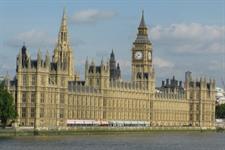Charities should be given an exemption from proposed reforms to leasehold law that could result in the Church of England losing about £35m, the body that manages the church’s assets has said.
The government’s Leasehold and Freehold Bill proposes scrapping “marriage value”, which is an additional premium paid by leaseholders to the freeholder when a lease of less than 80 years is extended in England.
The Church Commissioners for England said it broadly supported the legislation but was seeking an exemption or compensation for charities affected by the change to marriage value rules.
The body is concerned that charities that rely on freehold income could lose substantial sums from the change.
In a debate about the bill in the House of Lords last month, David Walker, the Bishop of Manchester, warned of the impact this loss could have on such charities.
“The bill, as drafted, will take money presently used for charity purposes and give it to the wealthy – robbing the poor to pay the rich: a reverse Robin Hood,” he said.
“My concerns are with particular reference to charities which own freehold as part of their permanent endowment.
“The Church Commissioners’ Hyde Park properties have an average sale value of £1m. Those who own them are not, by and large, London’s poor.”
The change could mean that the sums the Church of England has to distribute to charitable work would be reduced by £1m a year, the charity estimates.
Its residential portfolio comprises 1,465 units, of which 1,204 are subject to long leases.
Most of these properties are in the Hyde Park Estate and the charity said the proposed abolition of marriage value would result in a one-off loss of about £35m.
A spokesperson for the Church Commissioners said: “We support the broad thrust of the proposed legislation – making the system simpler and fairer.
“However, the proposal to abolish ‘marriage value’ amounts to a transfer of wealth from charities like us to wealthy individuals who own property in prime parts of London.
“For us, that means there is less money to spend on looking after those in greatest need.
“What we are seeking is an exemption for charities to the proposed abolition of marriage value, in view of the public benefit that charities provide, which would otherwise have to be scaled back.”
